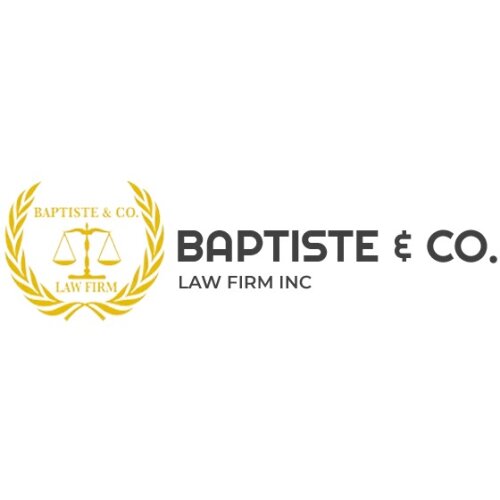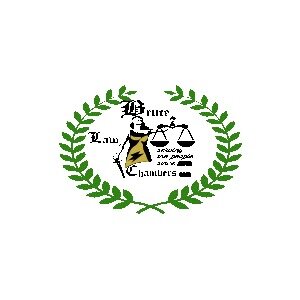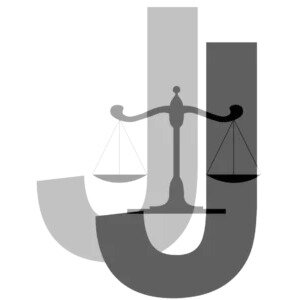Best Land Use & Zoning Lawyers in Saint Vincent and the Grenadines
Share your needs with us, get contacted by law firms.
Free. Takes 2 min.
Free Guide to Hiring a Real Estate Lawyer
Or refine your search by selecting a city:
List of the best lawyers in Saint Vincent and the Grenadines
About Land Use & Zoning Law in Saint Vincent and the Grenadines:
Land Use & Zoning law in Saint Vincent and the Grenadines governs how land is used and developed in the country. It establishes regulations for the type of activities that can be conducted on a particular piece of land, such as residential, commercial, or industrial use. Zoning laws help maintain order, prevent overcrowding, protect the environment, and ensure public safety.
Why You May Need a Lawyer:
You may need a lawyer specializing in Land Use & Zoning in Saint Vincent and the Grenadines if you are facing legal issues related to property development, zoning regulations, land use approvals, permits, variances, or disputes with local government authorities. A lawyer can help navigate complex laws and regulations, negotiate on your behalf, represent you in court, and protect your rights.
Local Laws Overview:
In Saint Vincent and the Grenadines, land use and zoning laws are primarily governed by the Physical Planning Act and the Physical Planning and Development Control Regulations. These laws set out the procedures for land development, including applications for planning permission, building permits, subdivisions, and changes in land use classification. It is crucial to comply with these regulations to avoid legal issues and penalties.
Frequently Asked Questions:
Q: What is the role of the Physical Planning Department in Saint Vincent and the Grenadines?
A: The Physical Planning Department is responsible for approving development projects, enforcing zoning laws, and ensuring compliance with land use regulations in Saint Vincent and the Grenadines.
Q: Do I need planning permission for all development projects in Saint Vincent and the Grenadines?
A: Yes, most development projects require planning permission from the Physical Planning Department before construction can begin. Failure to obtain permission can result in fines, injunctions, or forced removal of the unauthorized structure.
Q: How can a lawyer help me with a zoning dispute in Saint Vincent and the Grenadines?
A: A lawyer can assess the zoning regulations, gather evidence, negotiate with the authorities, represent you in hearings or court proceedings, and seek a resolution that protects your interests.
Q: Can I appeal a decision by the Physical Planning Department in Saint Vincent and the Grenadines?
A: Yes, you have the right to appeal a decision by the Physical Planning Department to the Physical Planning Board. If you disagree with the Board's decision, you can further appeal to the Minister responsible for physical planning.
Q: What are the penalties for non-compliance with zoning laws in Saint Vincent and the Grenadines?
A: Penalties for non-compliance with zoning laws may include fines, stop-work orders, demolition of unauthorized structures, and legal action by the authorities. It is essential to adhere to the regulations to avoid these consequences.
Q: Can I apply for a variance to deviate from the zoning regulations in Saint Vincent and the Grenadines?
A: Yes, you can apply for a variance from the Physical Planning Department if you can demonstrate a valid reason for deviating from the zoning regulations. The Department will assess your request based on specific criteria before granting or denying the variance.
Q: How long does it take to obtain planning permission in Saint Vincent and the Grenadines?
A: The timeline for obtaining planning permission can vary depending on the complexity of the project, the completeness of the application, and the workload of the Physical Planning Department. It is advisable to start the process well in advance to allow for any delays.
Q: Can I conduct business activities on residential property in Saint Vincent and the Grenadines?
A: In most cases, residential properties are zoned for residential use only. If you wish to conduct business activities on the property, you may need to apply for a change in land use classification or obtain a special permit from the authorities.
Q: How can I ensure compliance with land use regulations when purchasing property in Saint Vincent and the Grenadines?
A: Before purchasing property, it is essential to conduct due diligence, review the zoning regulations, assess any existing permits or restrictions, and consult with a lawyer specializing in Land Use & Zoning to avoid potential legal issues.
Q: What are the rights of neighboring property owners in land use disputes in Saint Vincent and the Grenadines?
A: Neighboring property owners have the right to be notified of proposed development projects, provide input or objections to the authorities, and challenge decisions that may affect their property rights or quality of life. It is crucial to consider the interests of all stakeholders in land use disputes.
Additional Resources:
For more information on Land Use & Zoning in Saint Vincent and the Grenadines, you can contact the Physical Planning Department, the Ministry responsible for physical planning, or consult legal professionals specializing in this field. These resources can provide guidance, assistance, and support for navigating the legal complexities of land use regulations.
Next Steps:
If you require legal assistance with Land Use & Zoning in Saint Vincent and the Grenadines, consider contacting a lawyer with expertise in this area. They can offer advice, representation, and advocacy to help resolve your legal issues effectively and protect your rights in matters related to property development, zoning disputes, permits, and compliance with local laws and regulations.
Lawzana helps you find the best lawyers and law firms in Saint Vincent and the Grenadines through a curated and pre-screened list of qualified legal professionals. Our platform offers rankings and detailed profiles of attorneys and law firms, allowing you to compare based on practice areas, including Land Use & Zoning, experience, and client feedback.
Each profile includes a description of the firm's areas of practice, client reviews, team members and partners, year of establishment, spoken languages, office locations, contact information, social media presence, and any published articles or resources. Most firms on our platform speak English and are experienced in both local and international legal matters.
Get a quote from top-rated law firms in Saint Vincent and the Grenadines — quickly, securely, and without unnecessary hassle.
Disclaimer:
The information provided on this page is for general informational purposes only and does not constitute legal advice. While we strive to ensure the accuracy and relevance of the content, legal information may change over time, and interpretations of the law can vary. You should always consult with a qualified legal professional for advice specific to your situation.
We disclaim all liability for actions taken or not taken based on the content of this page. If you believe any information is incorrect or outdated, please contact us, and we will review and update it where appropriate.
Browse land use & zoning law firms by city in Saint Vincent and the Grenadines
Refine your search by selecting a city.












